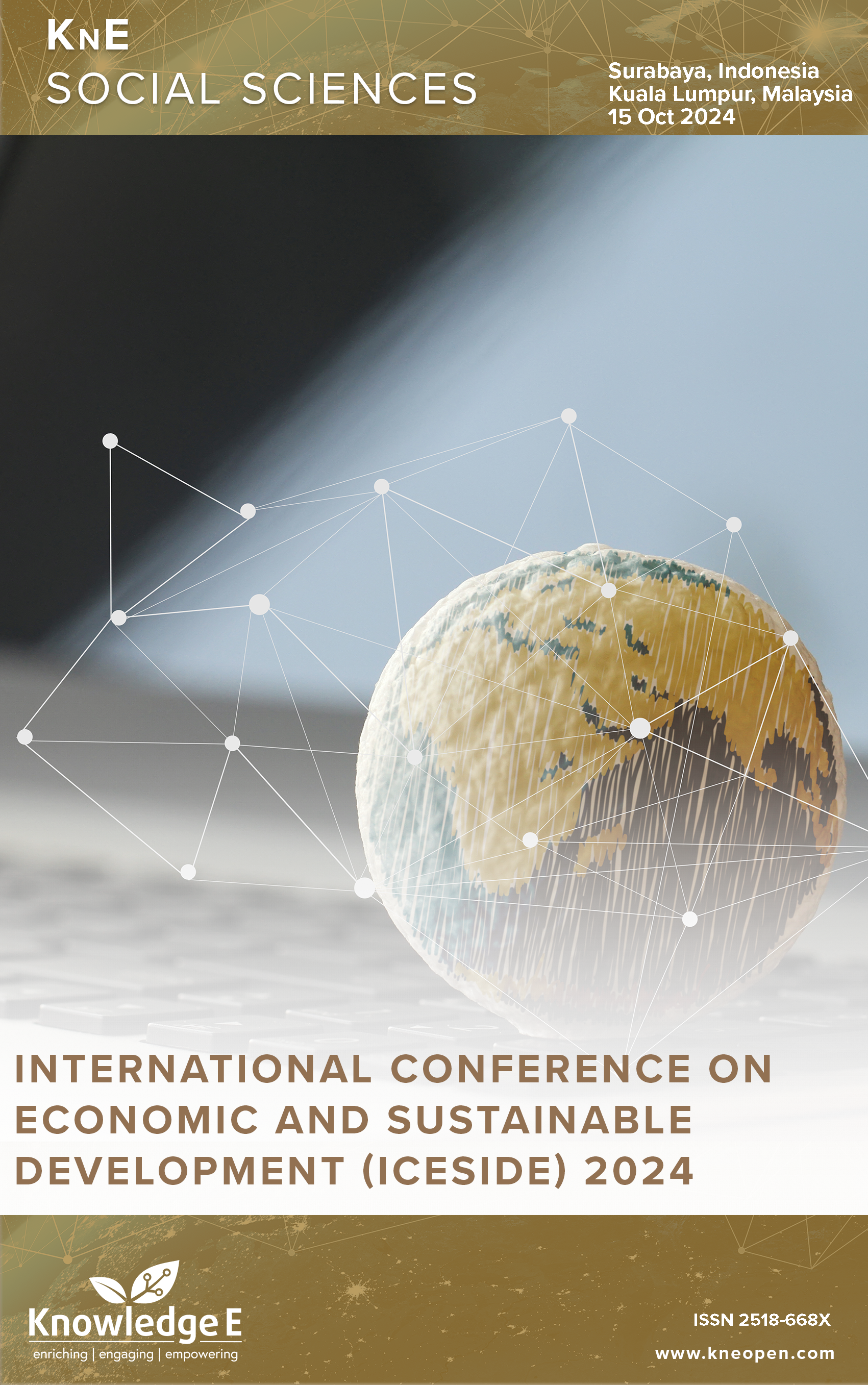Multiplier Effect of Investment in the Tourism Sector of West Papua Province on Regional Economic Development
DOI:
https://doi.org/10.18502/kss.v10i5.18090Keywords:
investment, tourism sector, regional economic, developmentAbstract
Tourism is one of the sectors that can be used as a mainstay for economic growth in a region oriented towards sustainable development. The tourism sector in this study uses the proxy of the accommodation and food and beverage provision sector. This study aims to see the multiplier effect value arising from investments made in the tourism sector locally (in West Papua Province) and nationally (in all provinces). The approach used in seeing the multiplier effect value is Inter-Regional Input Output (IRIO). The analysis results show that the multiplier effect value of investment in the tourism sector in West Papua Province is 1.51 times the investment value that will be received by West Papua Province and 1.86 times the total investment for the nation. This shows that the tourism sector can be used as one of the options for improving the economy of West Papua Province with the concept of sustainable development.
References
Nasution M. Ketimpangan Antar Wilayah dan Hubungannya dengan Belanja Pemerintah: studi di Indonesia. Jurnal Budget. 2020;5(2):54–102. DOI: https://doi.org/10.22212/jbudget.v5i2.101
Sinclair M. Thea. Tourism and economic development: A survey. J Dev Stud. 1998;34(5):1–51. DOI: https://doi.org/10.1080/00220389808422535
Kusmanaa C, dan Hikmat A. Keanekaragaman hayati flora di Indonesia. Jurnal Pengelolaan Sumberdaya Alam dan Lingkungan, 2015; 5(2): 187-198. DOI: https://doi.org/10.19081/jpsl.5.2.187
Miller RE, Blair PD. Input-Output Analysis: Foundations and Extensions. 2nd ed. Cambridge: Cambridge University Press; 2009. https://doi.org/10.1017/CBO9780511626982. DOI: https://doi.org/10.1017/CBO9780511626982
Puspita CD, Ningsih WA. Implementasi Inter-Regional Input Output (IRIO) dalam pemulihan Perekonomian Wilayah Akibat Pandemi Covid-19 di Indonesia. Seminar Nasional Offcial Statistics. 2021;2021(1):313–21. DOI: https://doi.org/10.34123/semnasoffstat.v2021i1.862
Nguyen QH. Impact of Investment in Tourism Infrastructure Development on Attracting International Visitors: A Nonlinear Panel ARDL Approach Using Vietnam’s Data. Economies. 2021;9(3):131. DOI: https://doi.org/10.3390/economies9030131
Mamirkulova G, Mi J, Abbas J, Mahmood S, Mubeen R, Ziapour A. New Silk Road Infrastructure Opportunities in Developing Tourism Environment for Residents Better Quality of Life. Glob Ecol Conserv. 2020;20:e01194. DOI: https://doi.org/10.1016/j.gecco.2020.e01194
Connell J. Tourism and Indigenous Cultural Revival in Aotearoa/New Zealand. Ann Tour Res. 2021;89:103–64.
Buckley R, Zhong L, Jiang M. Indigenous Tourism: An Integrated Analysis of Contributions to Community Well-being and Sustainability. Sustainability. 2021;13(3):14–31.
Ngo T, Pham T. Indigenous residents, tourism knowledge exchange and situated perceptions of tourism. J Sustain Tour. 2023;31(2):597–614. DOI: https://doi.org/10.1080/09669582.2021.1920967
Nunkoo R, Gursoy D. Residents’ support for tourism: A critical review of the literature. Tour Manage. 2019;73:104–22.

